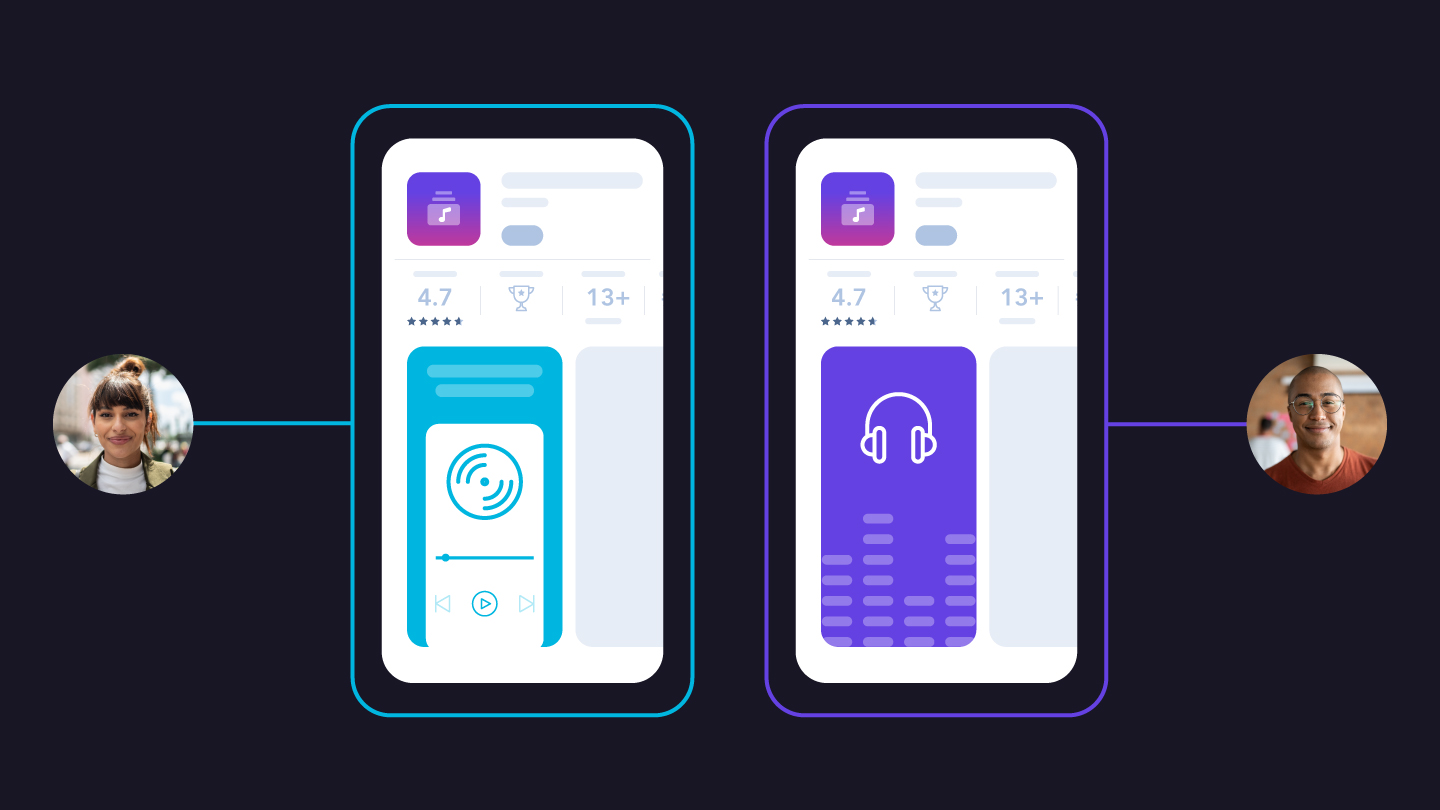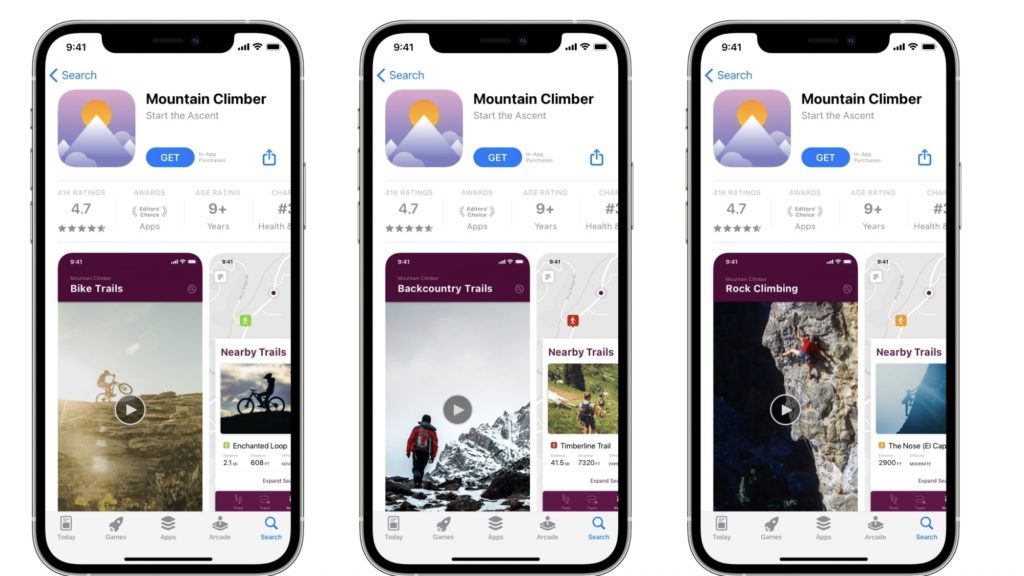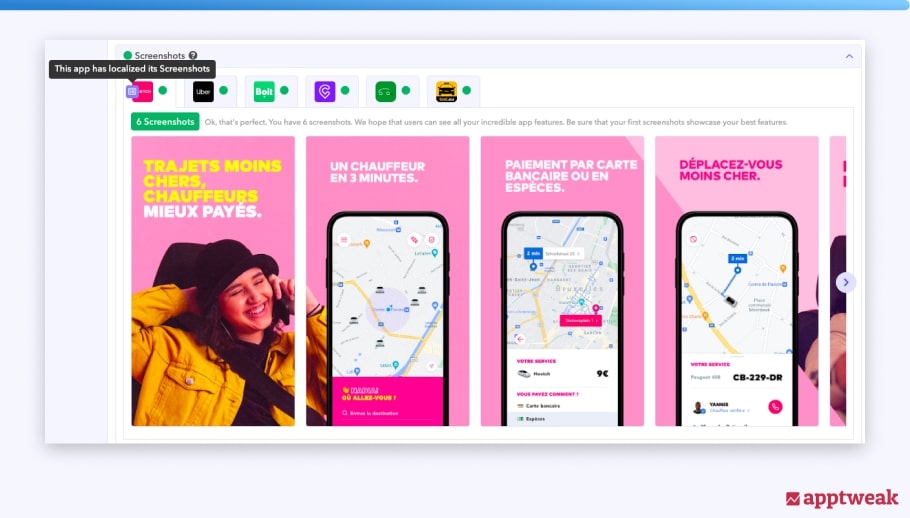Brand Advertising, Mobile App Growth, Performance Marketing, User Acquisition
App Store Optimization: Custom Product Pages & Custom Store Listings
Apr 24, 2024

Brand Advertising, Mobile App Growth, Performance Marketing, User Acquisition

App store optimization (ASO) has long been a cornerstone of any user acquisition campaign and broader organic mobile strategy for app developers worldwide. Still, there was a time when tweaking your app store page and testing different variations of it came at the cost of valuable time.
But then, Custom Product Pages (Apple App Store) and Custom Store Listings (Google Play) came to be. App store optimization became more time and resource-efficient, as marketers could now create multiple versions of an app store page to best align with their campaign goals and target audiences.
AppLovin customers can leverage these powerful tools to implement more effective user acquisition strategies, drive deeper engagement with campaigns, and ultimately convert more users to their apps.
This article will cover what app store optimization is, what Custom Product Pages and Custom Store Listings are, why you should be using them, and the best practices to help you maximize success.
To put it very simply, app store optimization — ASO for short — works for your apps much like SEO works for your app business. With the right words, pictures, and tags, discoverability can be much more attainable, and in turn, more of your ideal users will install and keep using your apps.
Honing your ASO strategy also works much the same as optimizing your SEO strategy: Testing different keywords, images, and other parts of your app store listings can greatly increase your visibility and help grow your apps. As we briefly touched on in the opening of this article, this is what creates such value in Custom Product Pages and Custom Store Listings.
Google Play launched Custom Store Listings (CSL) for Android in 2019. CSL enables developers to create up to 50 versions of an app store page to appeal to user segments in specific countries or their app install state. You can customize your app’s name, icon, descriptions, and graphic assets for each custom store listing to create a localized experience for those users and promote new app content.
Apple created Custom Product Pages (CPP) two years later with a similar objective in a post-iOS14 world. Developers can customize up to 35 versions of their app store page, showcasing new app content, characters, or features.
These alternate app store pages act as tailored landing pages for user acquisition campaigns. App marketers can unify ad creatives to each custom page, using unique URLs to drive more qualified traffic and achieve a higher app conversion rate.
Custom app store pages are a great compliment to App Store Optimization, helping users discover and engage with your app. You can use CSL/CPP to take advantage of seasonal events and holidays, culturally relevant content, or promote what’s new in your app. Each custom page can include imagery, promo text, and previews different from your main product page enabling you to see what best resonates with your audience.
Let’s take the example Apple shares. An app marketer can run three unique ad creatives targeting avid cyclists, backcountry hikers, and rock climbing enthusiasts and drive them to a custom product page for the same app. This also allows you to match the custom app store page with the ad creative that attracted the user in the first place, increasing the chances of converting them.

Another example shared by AppTweak focuses on creating local but relevant content. Hetch, a French ride-sharing app, promoted its app to French speakers in Western Europe. Their custom store listing featured local screenshots of Paris for French users while Belgian users saw the streets of Brussels. This is another way to drive more qualified traffic to your app.
Both examples highlight how app marketers can tailor simple ad creative and store assets to capture users vs. traditional UA tactics. Custom Product Pages and Custom Store Listings are popular with app marketers because of their ability to drive higher conversion rates at lower acquisition costs.

Custom app store pages are most effective when used for promotion outside of the app store leveraging relevant, targeted user acquisition and advertising campaigns. ASO focuses on helping your users to best discover your app within the app store through content keywords. UA and ASO teams that work together to create a unified strategy for ads and store assets will see the most successful conversion rates for their app.
Below are some additional tips when using custom app store pages:
Are you an app marketer or developer interested in acquiring high-value, new users for your app? Companies rely on AppLovin’s market-leading technologies to solve their mission-critical functions with a powerful, full-stack solution to grow their business.
Reach out to your AppLovin account team for more information on Custom Product Pages and Custom Store Listings, or open an account today.